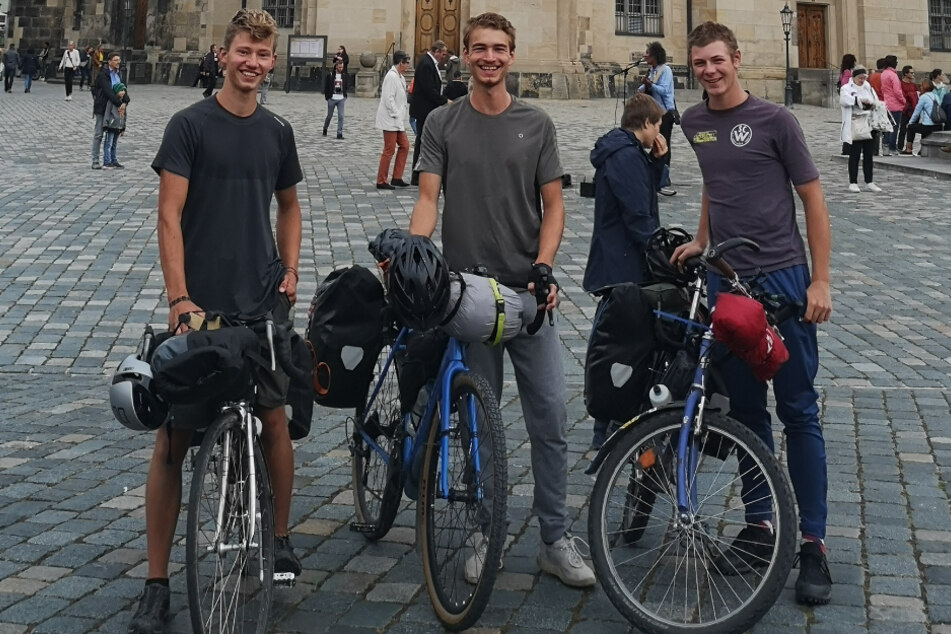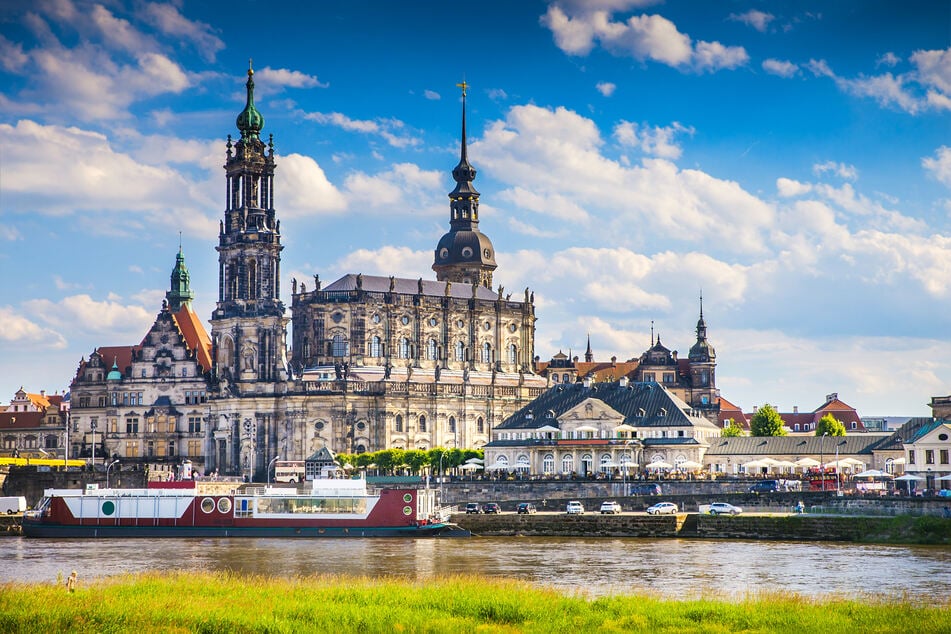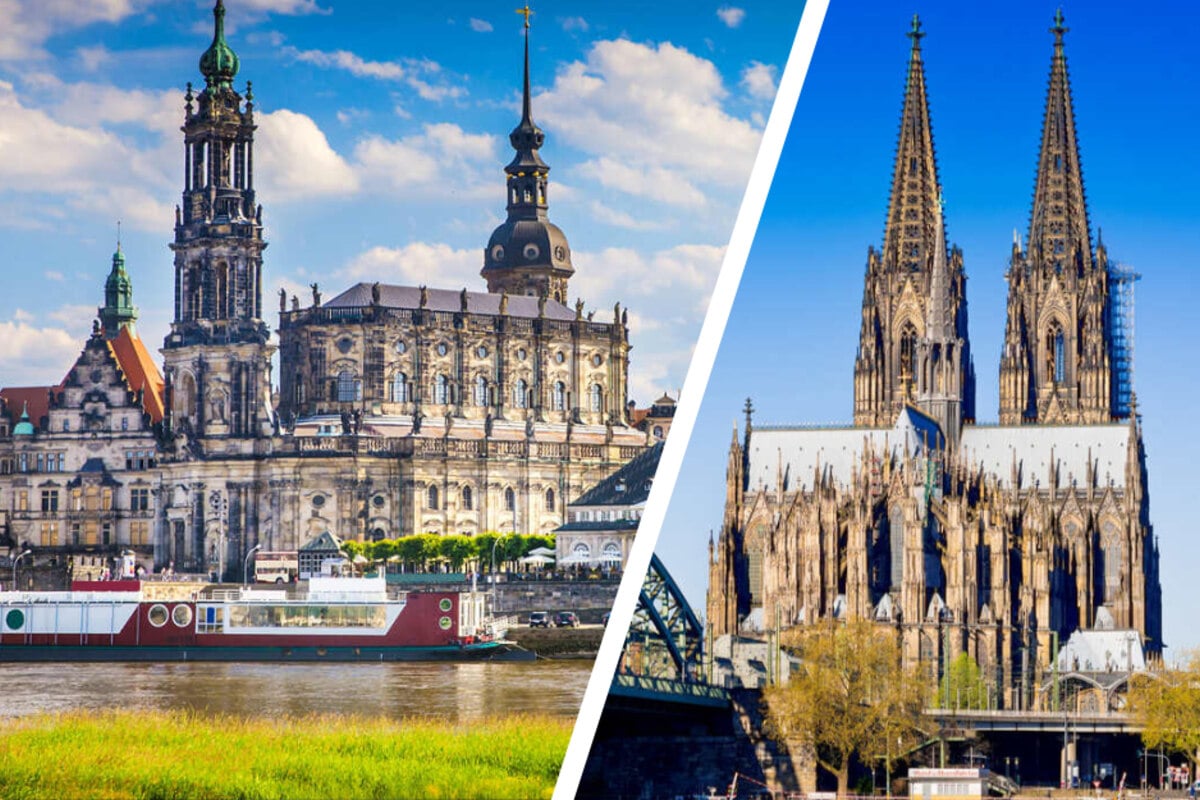23.09.2020
10:12
4.791
Put an end to prejudice? This is what “Ossis” think of “Wessis” and vice versa
–
Dresden / Cologne – How do young people from West Germany perceive the East 30 years after reunification? “Jammer-Ossis” and “Besser-Wessis” don’t mean anything to them anymore. But their view is therefore not entirely positive.
–
The Cologne Cathedral. © Günter Albers / 123rf
The three high school graduates from Cologne, Lovis, Till and Anton, rode their bikes to the east this summer. On Instagram, they post pictures that make you want to start cycling: The 18-year-olds lie between trees in their hammocks, eat outdoors and swim in the lake. They are now traveling in Poland.
Your impressions of East Germany are mixed. The cities found them more beautiful than in the west, mainly because of the large number of old buildings. “That was impressive, there are only a few places in Cologne,” says Anton. You can also still find small, old-fashioned shops and supermarkets that have long since disappeared in the West. Dresden seemed very wealthy to them, “a bit like Düsseldorf”.
But they also take home other experiences. “People are more distant,” Lovis noticed. “In the west, everyone who saw us gave us a smile or waved to us, while in the east we got rather cold looks.” Anton confirms this: “If you smiled or nodded while driving past, often nothing came back.”
In the Saxon city of Grimma, the three took part in a demo against a performance by right-wing extremists Björn Höcke and Andreas Kalbitz. “You could already see that there was less resistance,” says Anton. “The demonstrators were all about as old as we are, practically no older people, I found that a lot. There were more people for than against the AfD.” Lovis is certain: “There would be a lot more counter-demonstrators in Cologne and generally in North Rhine-Westphalia – especially when it comes to such high-ranking AfD people.”
The perspective of the three young people from Cologne is perhaps not atypical. 30 years after reunification, terms like “Besser-Wessi” and “Jammer-Ossi” sound just as old-fashioned as “the new countries”. But that does not mean that the relationship is very straightforward.
–
Parts of the East are perceived by many young people in the West as right-wing extremists

The private souvenir photo shows the three high school graduates Anton (left to right), Lovis and Till in front of the Dresden Frauenkirche. The 18-year-olds have been going on a longer bike tour through Eastern Germany and several countries in Eastern Europe since August. © – / private / dpa
Karl-Siegbert Rehberg was born in Aachen, but has been a founding professor for sociology at the Technical University of Dresden since 1992. The 77-year-old has the impression that parts of the East are perceived by many younger people in the West as right-wing extremists.
Rehberg remembers the case of an approximately 25-year-old young scientist whom he would have loved to employ in Dresden. “A very talented man, looking a little weird. And he definitely didn’t want the job in Dresden because he was afraid of being beaten up in the main train station. I thought that was a bit exaggerated.” Such an escalation relates in particular to Dresden, whose reputation suffered from the Pegida demonstrations.
Political scientist Claus Leggewie emphasizes the growing together of younger West and East Germans – regardless of the persistent differences in mentality that he also sees. “Right-wing radicalism is more widespread in the new federal states, but not an East German specialty,” he emphasizes. “The AfD tries to usurp the citizens’ movement, but it will not succeed in the long run.”
Empirical data on the attitude of young West Germans to the East are rare, states the German Youth Institute. A study by the Otto Brenner Foundation has revealed a noticeable difference in mentality between younger West and East Germans: According to this, every fifth citizen of the post-war generation in the East feels more “East German” than “German”. There is no West German counterpart to this regional identity, write the authors of the study.
One just released Bertelsmann study showed that people in East and West still judge reunification very differently – although this is much less the case for the younger generation. “We asked people in their 60s, people who were in the middle of life when German unification took place, and we selected around 30-year-olds who only know German unity as a narrative, only as a past,” explains Study author Kai Unzicker. Great differences between young and old would be visible here.
–
Young people know very little about reunification

The three high school graduates found Dresden to be a wealthy city. © Larysa Honcharenko / 123RF
The older East Germans clearly showed the “injuries and scarring of the time,” says Unzicker. “With the older West Germans, we are also aware that the turning point was a significant event, but they essentially followed it in the news.”
For the younger generation, however, reunification is far away – regardless of whether they live in the west or the east.
This fits in with an observation by Christine Strotmann, who is responsible for the project “Post-reunification children: 30 years of German unityAround 30 former winners of the Federal President’s history competition, born between 1989 and 1994, are involved in the project.
Even with these academics it was noticeable: “Especially when they come from West Germany, young people know very little about reunification and its local consequences, the impact on people’s lives.” Overall, however, feelings of foreignness would decrease, says Strotmann: “There are no concerns about moving to the East.”
Professor Rehberg also believes that younger people in East and West have more in common than older people. “There is still a certain feeling of alienation among older people,” he notes. “For a long time, it was seen as an adventure to go to study in the ‘Far East’, for example. With the younger generation this is only the case to a much lesser extent, if at all.”
The three two-wheelers from Cologne far in the west can also imagine studying in a larger east German city soon. They especially liked Leipzig. “It felt like trinkets to me,” says Anton – although he appreciates trinkets as a particularly colorful and slightly alternative-inspired district of Cologne. “It would be nice to study in a city like Leipzig or Dresden,” says Lovis. But then he makes one more restriction: “I think after that I would move back to the Rhineland.”
–
Cover photo: Image montage: Günter Albers / 123rf, Larysa Honcharenko / 123RF
–


